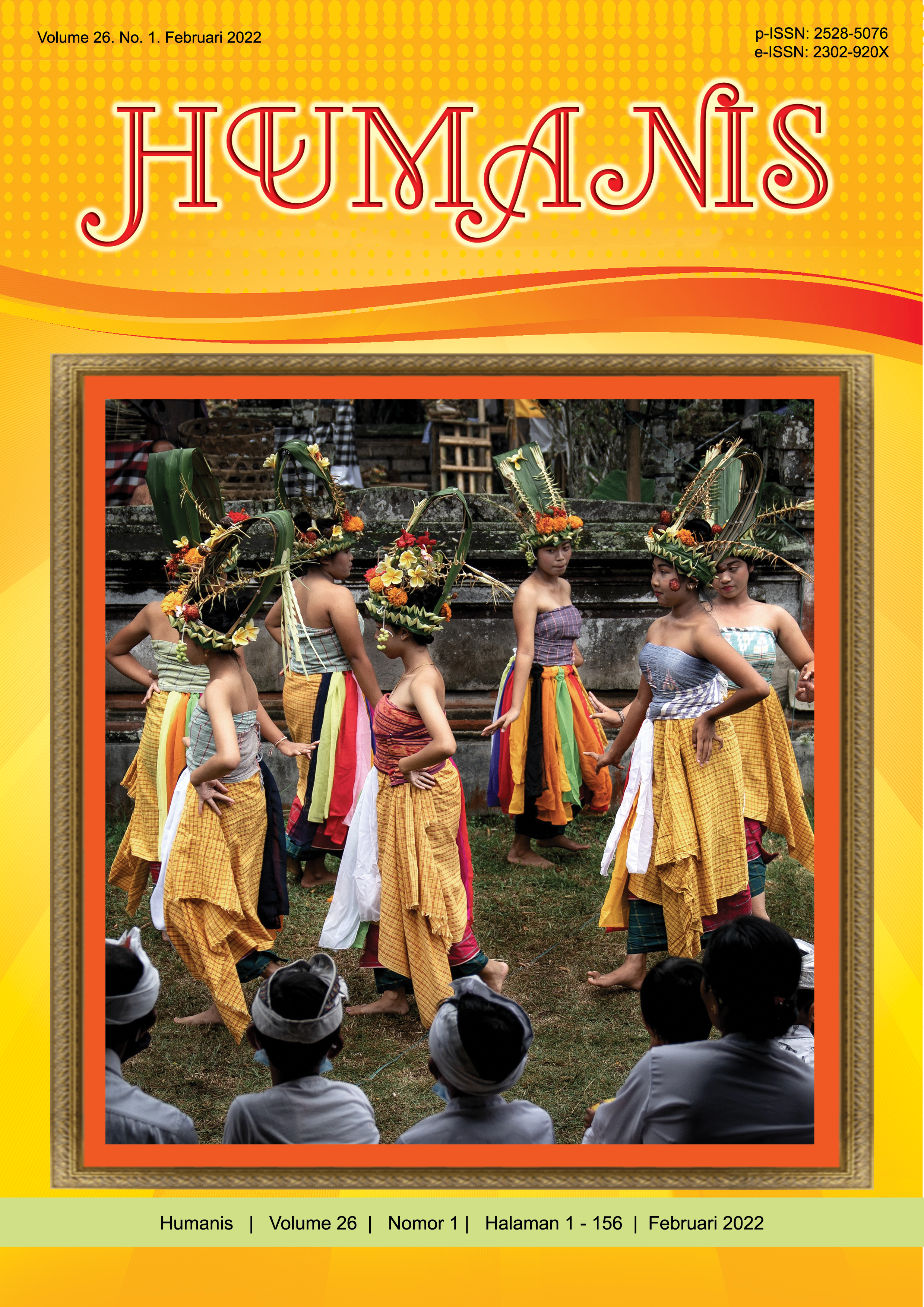Female Main Character in Princess Mononoke Film: A Study of Ecological Feminism
Abstract
This study aims to analyses the female main character in Princess Mononoke film that reflects ecological feminism. The data of this study was taken from the Princess Mononoke film. The data were analyzed by using the narrative-qualitative method. Theory of women-other human Others-nature interconnections by Karen J. Warren (2000) was applied to find out the connection of the female main character with nature. The results of this study show that the oppression of the forest leads to the oppression of the female main character. The forest was destroyed by humans, which lead to the oppression of Princess Mononoke because she lost her family, friend, and home.
Downloads
References
Arce, E. (2021). ‘Mononoke’ (in Princess Mononoke) – A Linguistic Note | Linguaholic Blog. Retrieved on 11th April 2021, from https://linguaholic.com/linguablog/mononoke-meaning/
Ari Kusuma, P. (2015). Liberal Feminism Values in Kate Chopin’s Story of an Hour. Dian Nuswantoro University, Semarang.
Bhalla, A. (2012). ‘Ecofeminism in Margaret Atwood’s Surfacing’, International Journal of Scientific and Research Publications, Vol 2, No 10, 1-6.
Cavallaro, D. (2006). ‘The Animé Art of Hayao Miyazaki’, North Carolina: McFarland & Company, Inc., Publishers.
Diastuti, N. M. (2014). Feminism Analysis in Austen’s Novel Pride & Prejudice. Udayana University, Denpasar, Bali.
Dirgantari, A. P. (2020). ‘Ekofeminisme pada Tokoh San dalam film “Princess Mononoke” Karya Sutradara Hayao Miyazaki’, PANTUN, Vol 5, No 1, 1-11
Gelling, C. (2020). Sociological Theory - Feminism (Sociology Theory & Methods) - YouTube. Retrieved on 10th November 2020, from https://www.youtube.com/watch?v=D6Dl-9pSW-4&feature=youtu.be
Griffin, S. (2016). Woman and Nature: The Roaring Inside Her. New York: Open Road. Retrieved on 2th November 2020, from https://www.overdrive.com/search?q=BC348269-DB0B-4B52-9969-15D09F4039BE
Hannam, J. (2013). Feminism. London New York: Routledge (A Short History of a Big Idea).
Harris, W. (2019). 10 Facts about Princess Mononoke only Japanese Fans Will Know, ScreenRant. Retrieved on 11th April 2021, from https://screenrant.com/facts-princess-mononoke-japanese-fans-will-know/
Kitchin, R. and Thrift, N. J. (2009). International Encyclopedia of Human Geography. First edition. Amsterdam: Elsevier.
Miles, K. (2018). Ecofeminism | Sociology and Environmentalism, Encyclopedia Britannica. Retrieved on 21th July 2021, from https://www.britannica.com/topic/ecofeminism
Regan, S. (2020). How Gender & The Environment Are Intrinsically Linked, mindbodygreen. Retrieved on 21th July 2021, from https://www.mindbodygreen.com/articles/ecofeminism-history-and-principles
Sears, K. (2014). Mythology 101: from gods and goddesses to monsters and mortals, your guide to ancient mythology. Avon, Massachusetts: Adams Media.
Septiaji, A., Zuriyati, Z. and Rahmat, A. (2020). ‘Women’s Life in Indonesian Contemporary Short Stories: A Study of Ecofeminism Transformative’, Indonesian Language Education and Literature, Vol 5, No 2,185–197.
Tong, R. (2014). Feminist Thought: A More Comprehensive Introduction. Fourth Edition. Boulder: Westview Press.
Warren, K. (2000). Ecofeminist Philosophy: A Western Perspective on What It Is and Why It Matters. Lanham, Md: Rowman & Littlefield (Studies in social, political, and legal philosophy).
Warren, K. and Erkal, N. (1997). Ecofeminism: Women, Culture, Nature. Bloomington: Indiana University Press.
Warren, K. J. (2015). Feminist Environmental Philosophy, Metaphysics Research Lab: Stanford University. Retrived on 21th July 2021, from https://plato.stanford.edu/archives/sum2015/entries/feminism-environmental/


















